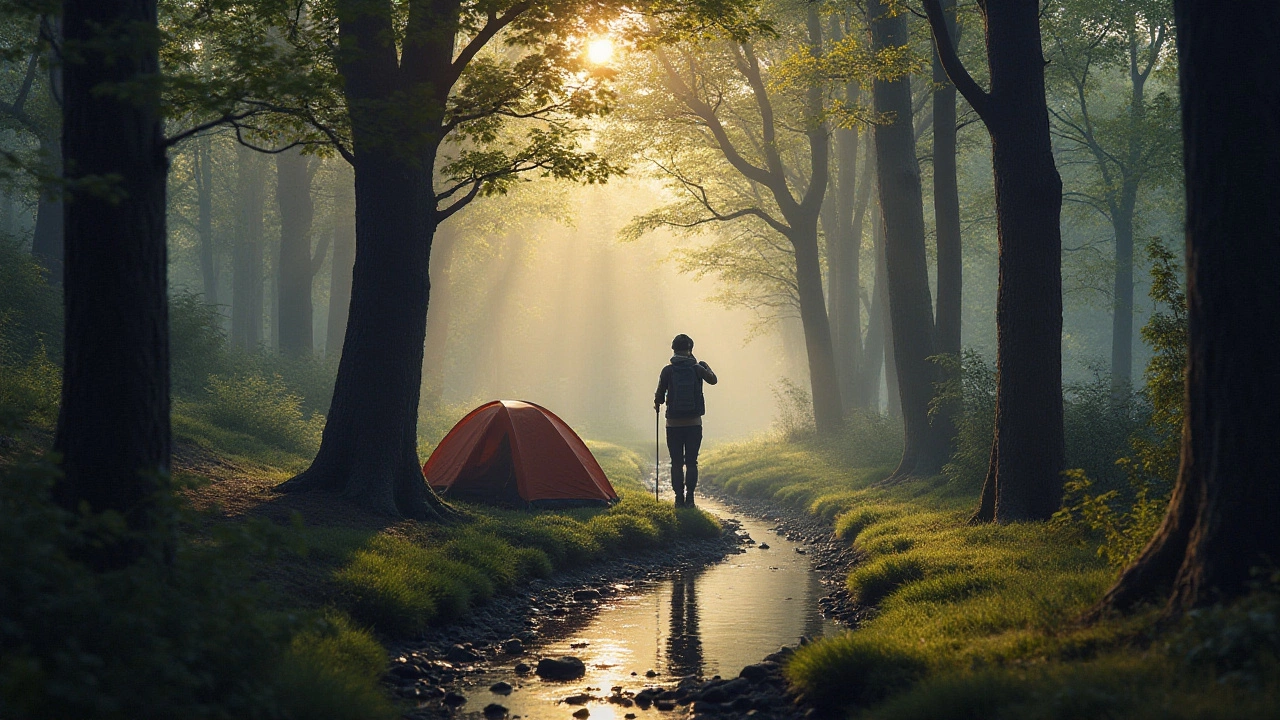Wild Camping Tips for Easy, Legal, and Enjoyable UK Adventures
Thinking about sleeping under the stars without a pitch‑fee? Wild camping can feel like a secret perk of the road, but it works best when you know the basics. Below you’ll find quick, hands‑on advice that lets you pitch a tent, flatten a sleeping bag, and walk away without a trace.
How to Choose a Spot That Won’t Get You Shouted At
First, check the land ownership. Most Scottish hills let you camp anywhere thanks to the Outdoor Access Code, while England, Wales and Northern Ireland need permission or must fall under specific “right‑to‑roam” zones. Use a free map app, look for signs that say “no camping,” and steer clear of private gardens, farms, or protected wildlife areas.
When you spot a potential place, walk around it. Is the ground flat and free of stones? Does a dry ditch run nearby for water? Avoid low‑lying spots that could flood at high tide or after rain. A good rule of thumb is to set up at least 30 metres from any path or water source so you stay out of the way of walkers and wildlife.
If you’re close to a village, a discreet spot on the edge of a woodland can give you privacy without breaking any rules. Always carry a small notebook or use your phone to note the exact GPS coordinates – this helps you find the same spot later and shows respect for the land if you need to report any issues.
Staying Safe and Leaving No Trace
Safety starts with gear. A lightweight tarp, a compact sleeping pad, and a good quality sleeping bag work better than a bulky, fancy tent when you’re on the move. Keep your fire kit to a minimum – a small, portable stove is safer and less likely to draw attention.
When it comes to waste, the 5‑R rule (Reduce, Reuse, Recycle, Recover, Respect) is your cheat sheet. Pack out everything you bring in, especially food scraps that attract animals. Use biodegradable soap for a quick wash, but do it at least 200 metres from any water source.
Lighting is simple: a headlamp with a red filter won’t disturb nocturnal wildlife, and it conserves battery life. If you need a light source for a short period, a small solar lantern does the trick without relying on fuel.
Respecting neighbors—human or animal—is key. Keep noise down after dark, store food securely, and be ready to move if a landowner asks you to. A polite “Sorry, we didn’t see a sign” and a quick pack‑up goes a long way.
Finally, think about the future. Leave the spot as you found it, or even cleaner. Fill in any fire pits, smooth out any ruts, and spread out any litter you might have missed. When every camper does this, wild camping stays a fun, low‑impact option for years to come.
With a little planning and a respectful mindset, wild camping becomes an easy addition to any UK road‑trip. Grab your gear, find a legal spot, and enjoy the peace of a night under the open sky.
Camping in the UK Woods: A Guide to Wilder Adventures
Exploring the option of camping in the UK woods can be both exciting and transformative. This article delves into the legalities of wild camping, the best woodlands to pitch your tent, and essential tips to ensure a safe and memorable nature escape. It also highlights some unique forest campsites that offer a balanced mix between adventure and comfort. Discover how to immerse yourself in the lush landscapes of the UK while respecting the environment.
